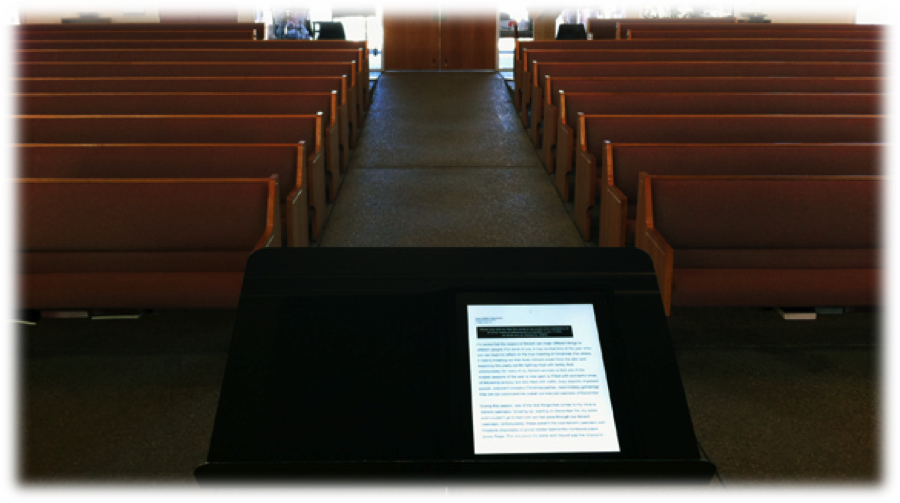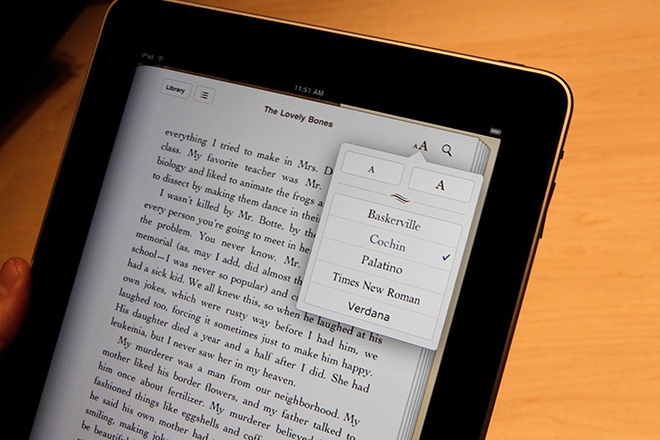
by Bret Capranica | May 10, 2011 | Featured Articles, Ordinary Pastor, Pastoral Ministry
Over a year ago, I wrote The previous article discussed essentials for a pastor”™s study. In this one I want to think through the benefits and drawbacks of having a study primarily at the church or at home. For some this is not an issue. Either the church does not provide a place for a study (especially for church planters), or someone does not have the space at home for a study. I have served four churches in my almost 23 years of pastoral ministry. In two of the churches I kept the totality of my study at the office the church provided me. I did not have any place in the homes I lived in for a separate study. In the last two churches, I have maintained both a home and a church-based office and study. Even with very young children (and at times, a lot of them), I”™ve found it most helpful for me to do the bulk of my serious Bible study, thinking work, and sermon preparation at home. For meetings, planning, administrative work, etc., I love using my church office. Here”™s a look at the benefits and drawbacks of keeping the bulk of my study at home. Benefits Concentration. Years ago, I heard John Piper in a Q & A session indicate that he kept his study at the church for a few months, but found out that it didn”™t work for him to concentrate and so he moved it to his home. I have found it easier to have uninterrupted concentration at home as opposed to the church office. At my office, I want...

by Bret Capranica | May 6, 2011 | Featured Articles, Ordinary Pastor, Pastoral Ministry, Time/Life Management
The previous post looked at the background, reasons, and benefits of having a weekly planning or review in order to focus on priorities in life. In this final post, I want to look at when you should do the review, what I do, and some things to watch out for. When Some of the principles that should govern when you do your weekly review are: “¢ Toward the end of your work week so you can look back on what was effective, how the next week will be affected by the previous week, what needs to be adjusted, and what needs to be followed up. “¢ Close to the beginning of your new work week. More than likely, your brain needs a break from the activity of the week. But before you begin a new one, your mind needs to gain an overall perspective of what”™s ahead. Pick an in-between time ““ where you”™ve had the opportunity to get away from the previous week and when you can mentally set the agenda for the next. For me this is Saturday morning. Friday is my day off and I typically block the day for family activities and rest. I don”™t want to think and plan on that day ““ I want to decompress and enjoy my family. So planning on Friday would simply be exhausting and frustrating. Sunday is filled with ministry opportunities. The morning is focused on preparing to preach and teach, the afternoon generally consists of lunch with church members and preparation for our evening gathering. I also often meet with a group of men to discuss Sunday”™s...

by Bret Capranica | May 3, 2011 | Featured Articles, Ordinary Pastor, Pastoral Ministry, Time/Life Management
One of the most helpful tools in my time management arsenal has been the weekly review or weekly planning. That is, taking a set amount of time with a prescribed list of actions that help me think through what needs to be done according to priority during the next week. Today and Friday, I will describe this process ““ from its background to its purpose, benefits, timing, problems, and details. Background I was first exposed to the idea of a structured time weekly planning after attending a Franklin Covey workshop on time management. As I look back and prior to what I do now, I did try to plan out my week each week. Out of necessity and from too many weeks of being frustrated that I was never accomplishing what was most important, I would generally try to come up with some sort of schedule. However, after going through Covey”™s approach to thinking through my various roles in life and being intentional about how I would act on those important roles in the next week, I began to become much more purposeful in my weekly planning. In the Covey seminar, we were asked to schedule a 20 minute time each week where we would review our personal mission statement, roles in life, and long-term goals. Based on these, I would put on my schedule and task list what I would do in the next week to enhance those roles and move my goals forward. Then came David Allen”™s Getting Things Done. Covey was good for me in thinking long-term. Allen”™s book was a gold mine for me thinking...

by Bret Capranica | Apr 26, 2011 | Featured Articles, Ordinary Pastor, Preaching, Technology
I began using my iPad to preach in October of 2010. Actually, I have used my iPad since I bought it for some teaching, preaching, and other messages. I used it to speak and sing at several funerals. I”™ve used it at a wedding. But in my regular preaching, I”™ve used the iPad every week since late October 2010. No regrets thus far. No debilitating challenges. While there are some potential drawbacks, none have been significant enough to outweigh some of the benefits. Benefits No More Paper & Printers. I typically bought a specially cut and weighted paper on which I printed my sermons. The paper was perfectly suited for the laser printer I used, and was the perfect weight and thickness for my preferences in using paper notes in preaching. I didn”™t have to fold an 8 ½ by 11 sheet in two, creating more bulk. No cutting required. With my 6 x 9 sheet, I could use a larger font (14) and suitably indent sentences without creating too many pages or having to use larger sized paper. But no more. No more laser ink cartridges. No more screaming in agony when half-way through printing a sermon the cartridge begin to quit. No more purchasing the paper; nothing more to file afterwards. I greatly prefer the electronic means to the paper pushing. Less Mess & Bulk. Early in my ministry I carried my notes loose in my Bible. No problem as long as you keep the pages numbered in case they get out of order. Loose leaf notes may be fine assuming you have a tall enough pulpit...

by Bret Capranica | Apr 2, 2011 | Featured Articles, Ordinary Pastor, Pastoral Ministry, Presidential History, Time/Life Management
What should an ordinary pastor glean from how the President”™s office was organized and functioned? The pastorate is not a political machine like the White House, so many issues are simply inappropriate and unnecessary. But I can find a number of helpful points to consider when thinking through how a pastor should think about how to make the best use of his time. A pastor can”™t run ministry on his own, but needs key and capable people to rely upon. The biblical principle of eldership indicates that no one man should be directing the affairs of the church. Qualified and capable men who can collectively oversee the church”™s ministry are needed. Ephesians 4:11-16 is a great picture of every part of the body doing its share, with pastors assuming one key role ““ that of equipping others to carry out the ministry. We need some regular (daily, weekly, monthly, quarterly, annual) time to think, write, plan, pray, and rest. Otherwise, a pastor”™s time will be reactive rather than proactive; he will lose focus on what is most important for the whole of the church because he is caught up in putting out immediate fires, and he will mentally and emotionally wear himself out from trying to keep up with every conceivable issue beyond his control. Trust and focus are key commodities in how we work with staff around us. Written plans culled and vetted by key staff as opposed to spur-of-the-moment conversations with innumerable personalities provides a more proactive, and thoughtful approach to advancing ministry objectives. Ministry needs to be thought through. What are the biblical parameters and implications...













